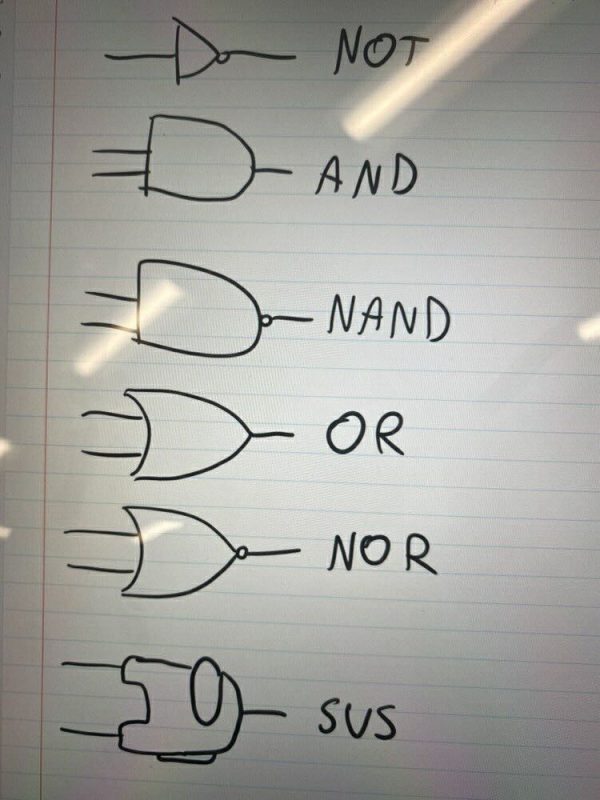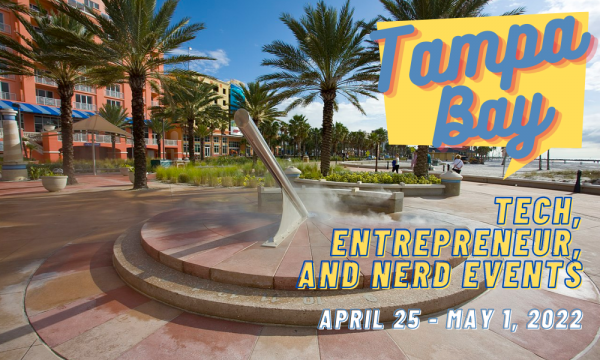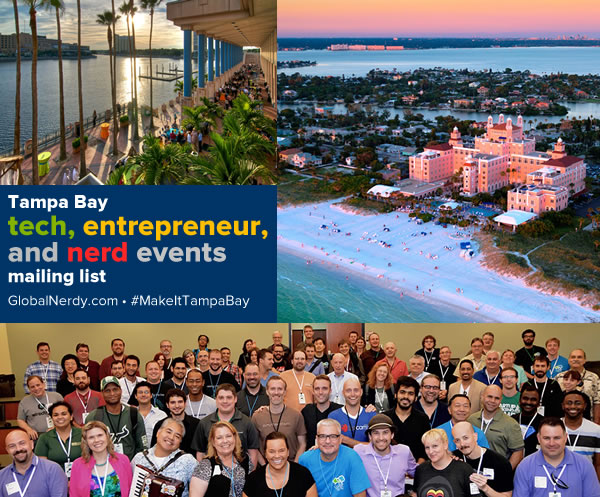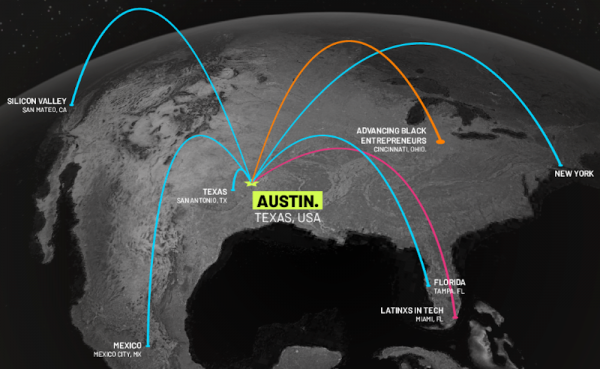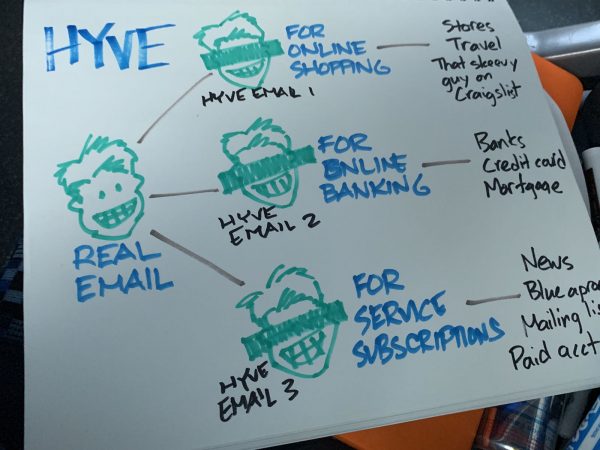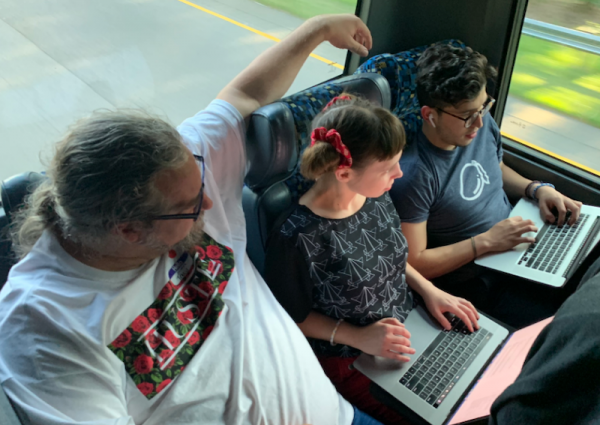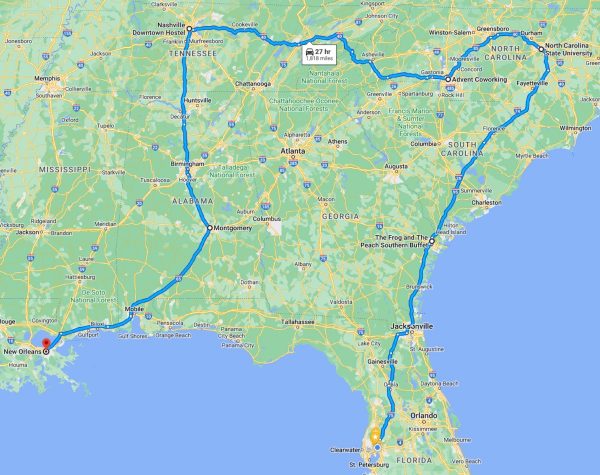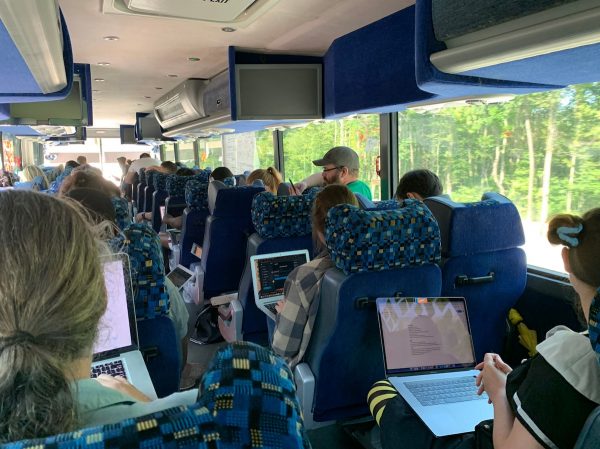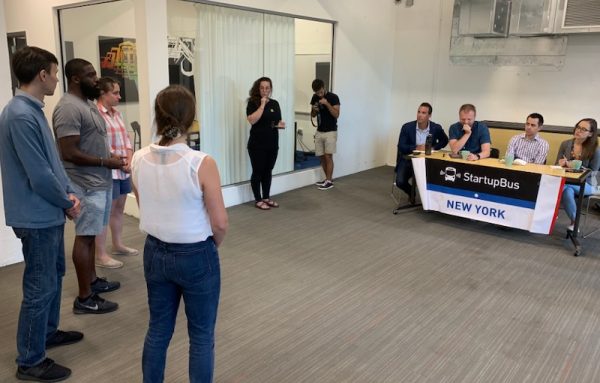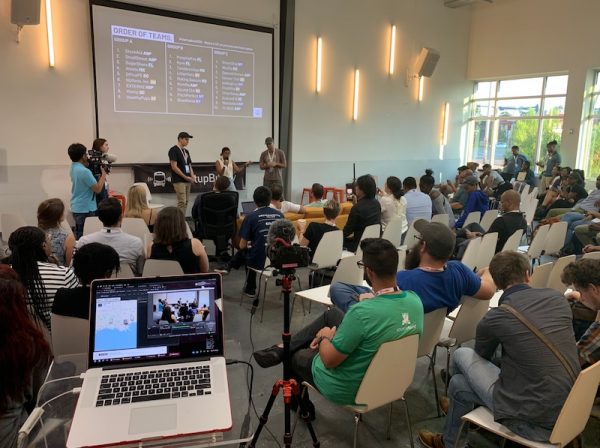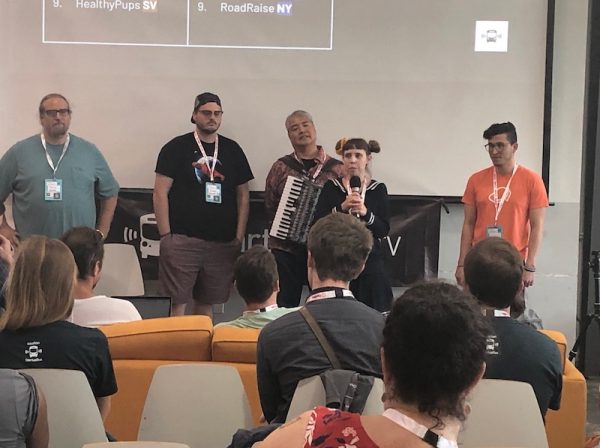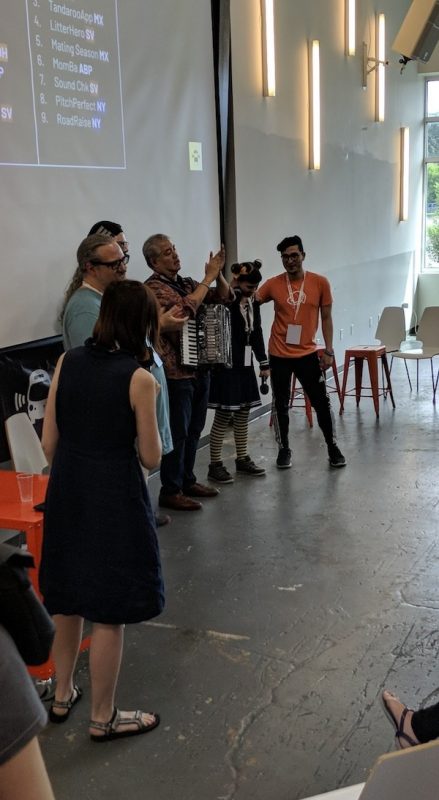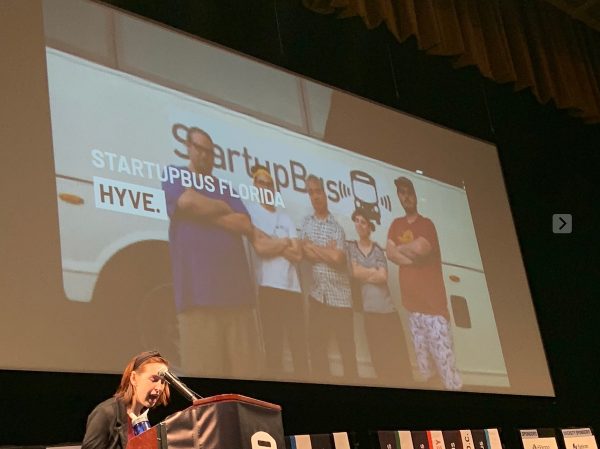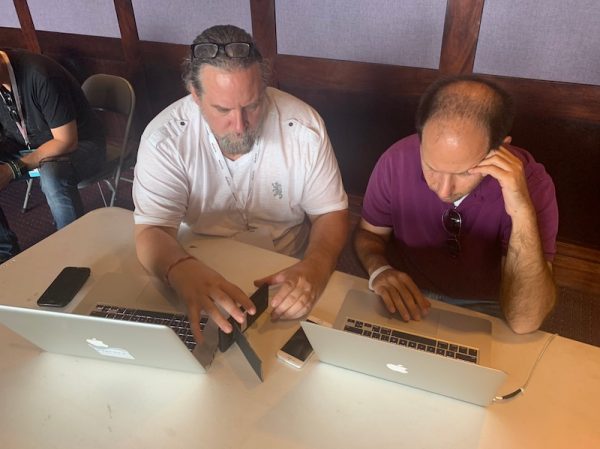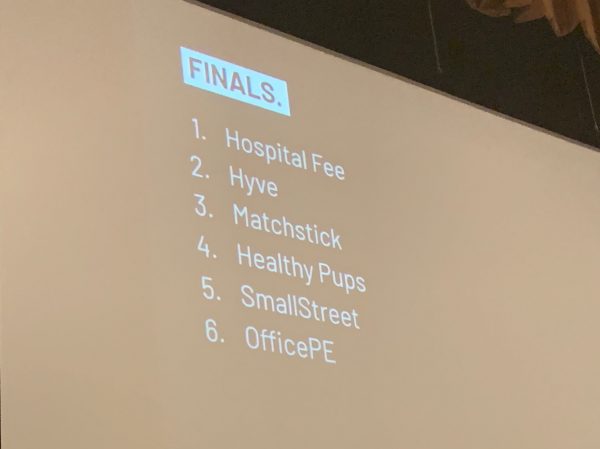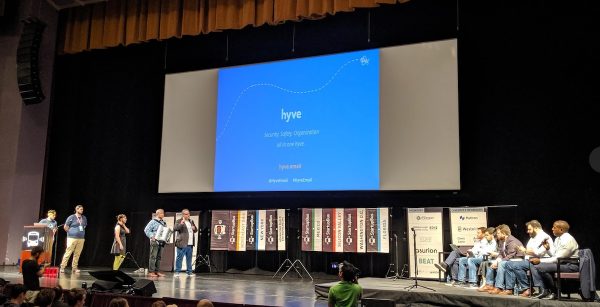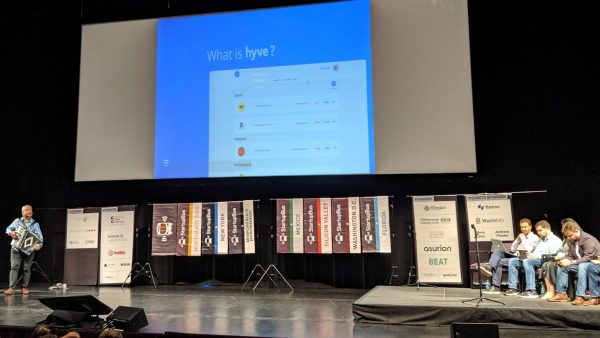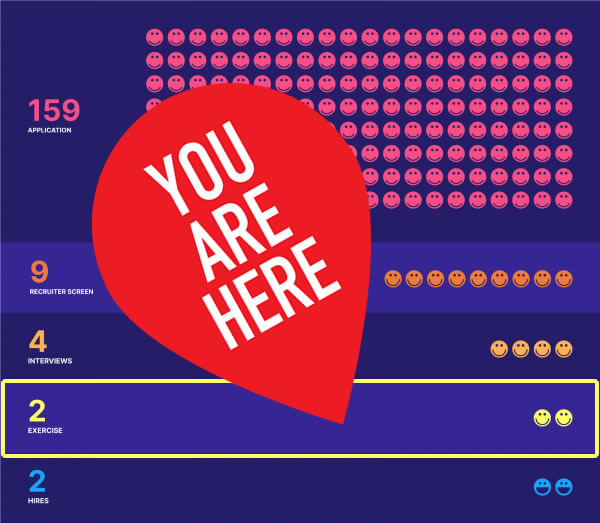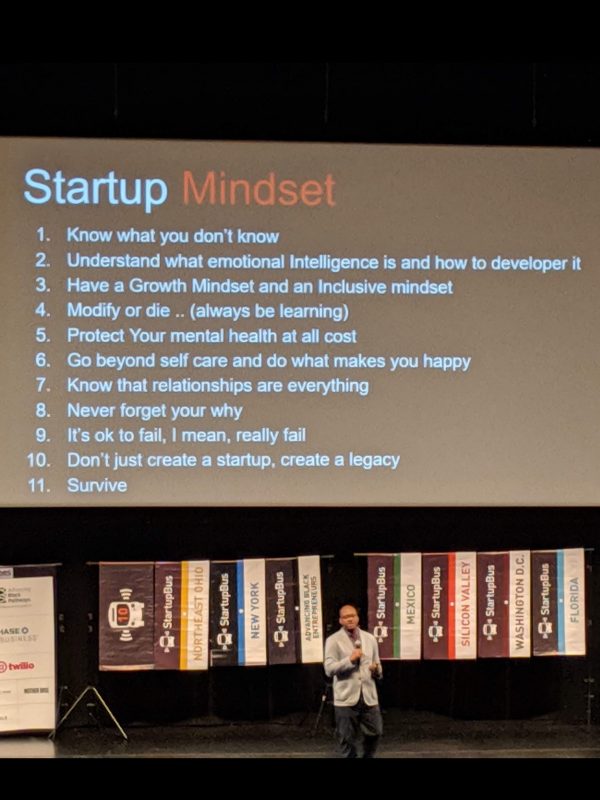Need explainers?
PyCon US 2022, the U.S. edition of the Python conference, happens this week in Salt Lake City, Utah at the Salt Palace Convention Center — and I’m going to be at the Auth0 booth!
Come drop by the booth — we should be pretty easy to find. Just listen for the accordion.
My history with Python
Toronto programmer D’Arcy Cain was looking for a programmer to help him develop an ecommerce site for a client. At the time, the stack that web developers needed to know was LAMP — Linux, Apache, MySQL, and Perl (later expanded to include other languages whose names start with “P”). D’Arcy’s preferred stack was BSD, Apache, Postgres, and Python, which at the time was considered to be a contrarian choice.
He asked if I was willing to learn Python, and I said “Sure! I can pick it up after I get back from Burning Man, on the first day after Labor Day…”
He said “No — I need you to hit the ground running on the first day after Labor Day.”
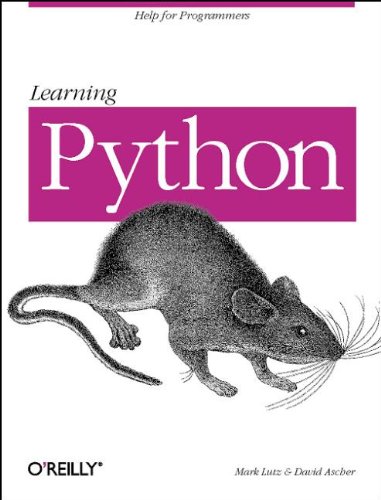
And I said, “All right. I’ll make it happen.” So I packed my laptop and a copy of O’Reilly’s Learning Python and took it with me to Black Rock Desert.

Since Burning Man is more of party-all-night place, it can be quite peaceful in the morning. The rental RV that I shared with San Francisco-based artist David Newman and our friend Nancy was an oasis of calm with a good generator, and I was able to spend a couple of hours a day going through Python exercises, catch a nap, and then strike out onto the playa in the afternoon for the next evening’s mayhem.
By the time I got back to Toronto, I was ready to start coding in Python, and a descendant of that original site and its business still exists today. I figured that any programming language you can learn at Burning Man has to be good, so I’ve been using it to get things done since then, including putting together the Tampa Bay tech events list that appears on this blog weekly.
In spite of my long-time use of Python, even during that period when Ruby was ascendant thanks to Rails, I’ve never gone to PyCon — until now. I’m looking forward to it!
Last Monday, a good number of the Tampa Bay tech scene got together for a good time for a good cause: the Tampa Bay Tech Golf Classic.
Organized by Tampa Bay Tech — Tampa Bay’s non-profit technology council, whose mission is to make “The Other Bay Area” a flourishing tech hub — it took place at Carrollwood Country Club and the title sponsor was Okta, where I work (remember, Auth0 is now an Okta product unit)!
The proceeds from the tournament went to the recently-founded Tampa Bay Tech Foundation, whose purpose is to radically connect area students and job seekers to opportunities in the technology community. The Foundation’s initiatives include:
- Internship development programs
- Scholarships
- Talent-focused programming
- Workforce gap research
 |  |
I was there as a volunteer and got to see Tampa Bay Tech’s CEO Jill St. Thomas and Member Engagement Manager Karen Popp.
Since Okta was the title sponsor, it was only fitting that Chris St. Thomas, Strategic Account Director at Okta, gave a quick opening address:
I sharpened my credit card-processing skills selling “super tickets”, which entitled the bearer to raffle tickets, extra drink tickets, entry into a couple of contests, and most importantly, a mulligan:

Here’s what Tampa Bay Tech’s Karen Popp posted in LinkedIn about the event:
Thank-you to all who participated in the Tampa Bay Tech Golf Classic presented by title sponsor Okta. We’ve got the best members, sponsors, guests and volunteers! It was a sensational event and raised significant funding for our Foundation. Save the date for next year, 4/17/23. Contact me if you’d like to reserve your sponsorship today! I appreciate the #radicallyconnected community we’re building in Tampa Bay!
Here’s the list of tech, entrepreneur, and nerd events for Tampa Bay and surrounding areas for the week of Monday, April 25 through Sunday, May 1, 2022. That’s right, we’re going into a brand new month this week!
As far as event types go, this list casts a rather wide net. It includes events that would be of interest to techies, nerds, and entrepreneurs. It includes (but isn’t limited to) events that fall under the category of:
- Programming, DevOps, systems administration, and testing
- Tech project management / agile processes
- Video, board, and role-playing games
- Book, philosophy, and discussion clubs
- Tech, business, and entrepreneur networking events
- Toastmasters (because nerds really need to up their presentation game)
- Sci-fi, fantasy, and other genre fandoms
- Anything I deem geeky
By “Tampa Bay and surrounding areas”, this list covers events that originate or are aimed at the area within 100 miles of the Port of Tampa. At the very least, that includes the cities of Tampa, St. Petersburg, and Clearwater, but as far north as Ocala, as far south as Fort Myers, and includes Orlando and its surrounding cities.
This week’s events
Monday, April 25
| Group | Event Name | Time |
|---|---|---|
| Rafael Stuchiner | How to Make the Crypto Markets Work For You~~~Tampa, FL | |
| Young Professionals of Tampa Bay Networking Group | In person at Fords Garage St Pete | 11:00 AM |
| Professional Business Networking with RGAnetwork.net | St. Pete Networking Lunch! Fords Garage! Monday’s | 11:30 AM |
| Entrepreneurs Empower Empire | Entrepreneurs Empower Empire-Official Meeting | 11:30 AM |
| Christian Professionals Network Tampa Bay | Live Online Connection Meeting- Monday | 11:30 AM |
| Entrepreneurs & Business Owners of Sarasota & Bradenton | Virtual Networking Lunch Monday | 11:30 AM |
| Professional Business Networking with RGAnetwork.net | Virtual Networking Lunch | 11:30 AM |
| Thinkful Tampa | Thinkful Webinar || Learn Data Analytics With Thinkful | 12:00 PM to 1:30 PM EDT |
| Orlando Melrose Makers | In-Person: Laser Cutter Orientation | 2:30 PM |
| Network After Work Tampa – Networking Events | How to Grow an Audience Using Your Archetype | 4:00 PM |
| Headquarters Coworking – Kissimmee | Headquarters Coworking Expansion Party | 4:00 PM |
| West Orange Comics & Video Games | Magic Mondays | 5:00 PM |
| Board Game Meetup: Board Game Boxcar | Weekly Game Night! (Lazy Moon Location) | 6:00 PM |
| Thinkful Tampa | Thinkful Webinar || Data Science vs. Data Analytics | 6:00 PM to 7:30 PM EDT |
| BerLagmark – Sarasota Amtgard | Monday Night Fighter Practice! | 6:00 PM |
| Beginning Web Development | Weekly Learning Session | 6:00 PM |
| Critical Hit Games | MTG: Commander Open Play | 6:00 PM |
| Tampa Bay Tabletoppers | Monday Feast & Game Night | 6:00 PM |
| Orlando Adventurer’s Guild | [IN PERSON] DDAL05-16 – Parnast Under Siege (Tier 1, FR, historic) | 6:30 PM |
| Toastmasters Division G | Triple Crown Toastmasters Club 4147 (Virtual) | 6:30 PM |
| Tampa – Sarasota – Venice Trivia & Quiz Meetup | Trivia Night – Off the Wagon Kitchen & Brewery Smartphone Trivia Game Show | 6:30 PM |
| Toastmasters District 48 | North Port Toastmasters Meets Online!! | 6:30 PM |
| Toastmasters District 48 | Sharpen Your Presentations at South Tampa TM Before Going Live! | 7:00 PM |
| Toastmasters District 48 | Time to Take Speaking Your Passion to the Next Level at South Tampa TM! | 7:00 PM |
| Tampa Hackerspace | Woodshop Safety (Members Only) | 7:00 PM |
| Orlando Stoics | ONLINE: “The Impact of PTSD” (Part 1) | 7:00 PM |
| Tampa Bay Gaming: RPG’s, Board Games & more! | Board Game Night at Armada Games | 7:00 PM |
| Learn-To-Trade Forex – Online (As Seen on Orlando Sentinel) | Learn-To-Trade Q&A (ONLINE) | 7:00 PM |
| Tampa Area Crypto And NFT IRL | Tampa Area Crypto and NFTs – Share and Learn Group | 7:00 PM |
| Tampa Flutter Meetup Group | In-Person Meetup | 7:00 PM |
| Central Florida AD&D (1st ed.) Grognards Guild | World of Greyhawk: 1E One-Shots | 7:30 PM |
| Thinkful Tampa | Thinkful Webinar || Intro To Data Analytics: Tableau Basics | 9:00 PM to 10:30 PM EDT |
| Tampa / St Pete Business Connections | Monday Virtual Business Introductions | 11:30 PM |
Tuesday, April 26
Wednesday, April 27
Thursday, April 28
Friday, April 29
Saturday, April 30
Sunday, May 1
Do you have any events or announcements that you’d like to see on this list?
Let me know at joey@joeydevilla.com!
Join the mailing list!
If you’d like to get this list in your email inbox every week, enter your email address below. You’ll only be emailed once a week, and the email will contain this list, plus links to any interesting news, upcoming events, and tech articles. Join the Tampa Bay Tech Events list and always be informed of what’s coming up in Tampa Bay!
After the great interruption of 2020 and 2021, North America’s largest, longest-distance hackathon, StartupBus North America, is back for 2022! From July 27th through 31st, 2022, seven buses will depart from seven locations across the continent…
…and make their way to Austin, Texas in three days. During those three days, “buspreneurs” — StartupBus’ term for its participants — think up and build a tech startup from the ground up: the idea, business plan, software, and pitch.
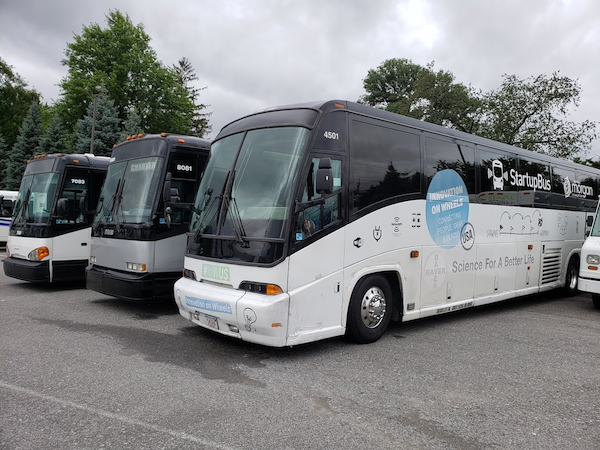
One of the seven buses making its way to Austin over three days is the Florida bus, and it’s leaving from Tampa. This year, one of the Florida bus’ conductors — StartupBus’ term for its coaches/facilitators — is…Yours Truly!
🚨 Keep reading: later on in this article, there’s something that I’ve never told anyone online until now.
I was on StartupBus in 2019
I was a “buspreneur” on the Florida StartupBus in 2019, the last year the event took place, when the destination city was New Orleans. Along with my teammates Rina Bane, David Castaneda, Justin Linn, and Tracy Ingram, we made it all the way to the finals and got the runner-up position.

Tracy Ingram, David Castaneda, Joey deVilla, Rina Bane, Justin Linn.
The startup we created on the bus was Hyve, a service that lets you create virtual disposable email addresses that you can use when subscribing to services or communicating with untrusted people.
Rather than provide a service or person with your real email address, you use Hyve to generate a disposable email address to give to that service or person, and it forwards emails sent to that disposable email address to your real email address.
What happened on StartupBus Florida 2019?
It started with a get-together the day before we boarded the bus, which was captured in this ABC Action News piece:
As you may have guessed, we spent a fair bit of time coding and designing the service…
…but at the end, we present our startups to panels of judges, so we also spent a lot of time working on our pitches. We did so many practice pitches on the bus, followed by feedback from the conductors and our fellow buspreneurs, including this one by Tracy:
Tap to play.
Just as startup life is full of unpredictable events, StartupBus is designed to mirror that unpredictability. For starters, we only knew that the destination was New Orleans, and that it would be a roundabout one so that it would take three full days. I pieced together the route shortly before we arrived:
We knew that there would be stops at night for hotels as well as other places, but we didn’t know where or when.
Our first non-meal/gas/bio-break stop happened in the late afternoon of Day 1 when we visitied the Entrepreneurship Garage at NC State University in Raleigh, North Carolina. It let us get more work done in a stationary place with access to more guidance, better internet connectivity, more reliable power, and (very importantly) bathrooms. It’s where we recorded this mandatory “Why are we on the bus?” video at the end of Day 1…
Tap to play.
…and it gave us a chance to refine our pitch by trying it out on non-bus people, such as the Lyft driver who took us from the Entrepreneurship Garage to our hotel:
Tap to play.
Day 2 gave two buses a surprise: upon our departure from Raleigh, the Florida and DC buses merged to become the Swamp Thang bus!

Now we had a full ride:
We got to know the folks from DC, and the spirit was one of “coopetition” — we knew we were all competing against each other, but we also made friends and even helped each other out. I ended up spending a little time helping a DC developer with a bug in their Flutter project.
We had a stop at Advent Coworking in Charlotte, North Carolina, where our bus met up with the New York bus, and some of us (time was limited) got to do our first pitches in front of a panel of judges.
There were also the “unexpected unexpected” events — the unexpected events that the conductors didn’t plan. There was the time our bus got stuck on one of the oversized speed bumps at NC State:

Tap to view at full size.
Our big “unexpected unexpected” happened when the bus overheated and had to pull over on the highway somewhere in the mountains in Tennessee:
This delay meant that getting to the next stop meant staying on the bus well into the night:
Day 3 was a long, hard drive with a lot more pitching, designing, coding, and reaching out to prospective business partners and customers (yes, you have to treat your bus startup just like a “real” one!), but at long last, we arrived in New Orleans:
Which brings us to Day 1 of two days’ worth of pitch competitions: the qualifiers.
All our previous pitches were mere rehearsals. This pitch would determine if we would get into the semifinals!
Here’s our qualifying pitch:
We continued working into the night of Day 1, refining the code and pitch. We wouldn’t find out who would make it into the semifinals until Day 2 — and we did!
So we worked on our pitch and code, bringing in Andrew Romaner as a consultant (remember, you’re running like a real business, so you can get consultants if you have the connections!)…
…and made it to the finals!
So we worked some more…
…which led to our final pitch:
Once all the finalists made their pitches, the judges sequestered themselves, and shortly afterwards, they made their announcements, which included Hyve!
Just because I love that bit about walking the line between good and evil, here’s just the part about Hyve:
Here’s the reporting on our victory:
- TampaBayInno: Tampa Team Finishes Second On Startup Bus Tour
- 83degrees: StartupBus Florida yields teams of winners in national competition
- University of South Florida: Alumni Lead and Compete in National StartupBus Challenge
The reward for our efforts

Let me be very clear: StartupBus offers no prizes of any sort. No cash, no prizes from sponsors, not even a trophy or certificate. In fact, you’ll spend money in the process, including getting home (the bus gets you to the destination city, but you have to make your own way back).
So why do it? Because what you gain from StartupBus is more valuable in the long run than mere coin or prizes: experience.
It’s one thing to be an employee working from home or in an office. It’s an entirely other thing to be a startup founder — even for less than a week’s time — collaborating closely with people you’ve known only for hours, on a bus, where the power and internet are unreliable, and dealing with the curve balls that the conductors and the vagaries of the road will throw your way.
Something I’ve never told anyone until now
There are more comfortable things that you could do with your time, but I remind you that the magic happens outside your comfort zone.
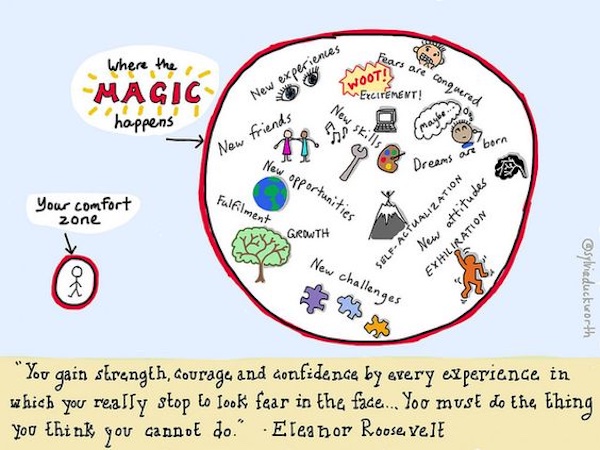
Here’s something I’ve never said online until now: I was fired from my job in June 2019. But rather than cry in my own beer and wonder how I’d explain it to prospective employers, I decided to shake things up.
My plan was simple:
- Join StartupBus, which was happening in July 2019.
- Winning or at least be a finalist.
- Parley the victory and experience into my next job or a new company.
Simple? Yes. Easy? Most certainly not. But extraordinary outcomes need extraordinary effort, and StartupBus definitely falls in the “extraordinary effort” category…
…especially since one of the judges in the finals was the CEO of the company that fired me. We’re on good terms, but if I can pitch under those circumstances, I can pitch anywhere, anytime, anyhow. I knew it was going to happen if I made it to the finals — in fact, I was counting on it.
StartupBus gave me the opportunity to gird my grit, sharpen my software skills, and polish my personal pitch. I’ve taken my experience on the bus and used it to get to the rather nice place where I am today.
After StartupBus, I contacted Trey Steinhoff, a buspreneur from 2017. He and Robert Blacklidge created Course Align, which grew into a real business beyond the bus. Trey was Director of Product at Lilypad at the time, and they were looking for a mobile developer.

Tap to view at full size.
“Why just take on any mobile developer, when you can get one who’s also been on the bus?” I asked, and got hired. It turned out that Akira Mitchell, one of the conductors on StartupBus Florida, was a scrum master there! I remember telling Akira “You know, it’s so much easier working with you at actual desks in a stationary office than on a bus bouncing all over the road while the wifi’s going in and out.”
I also cited my StartupBus experience during my interview process with Auth0, where I now work.
I got to go places I’d never seen or place I hadn’t seen in a while. I got to get to know some friends better, and made new ones with whom I’m still in touch today. I got to experience a challenge that most techies don’t take on, and I boosted my “personal brand” at a time when I really needed that boost. StartupBus can pay off big if you harness the experience.
And now, I’m a conductor

Tap to view at full size.
A couple of weeks ago, I was contacted about being a conductor. “Your name keeps coming up, over and over again, so — would you like to be a conductor?”
I still have more to experience and learn, and this time, I’d like to do it by helping, mentoring, and guiding buspreneurs on the Florida bus. I owe it to the Tampa Bay and Florida tech communities that have given me so much. And hey, after all this time cooped up, I’m ready for some new road adventures.
Are you on the bus?
As I write this, we’re less than 100 days away from the day the bus leaves Tampa for Austin. The question you should be asking yourself is:
Are you going to be on StartupBus? The Florida bus will depart from Tampa, but there are others leaving on the same date:
- The Advancing Black Entrepreneurs bus is one especially for a greatly underrepresented minority in tech, and it departs from Cincinatto, Ohio.
- The California bus’ departure point is yet to be determined.
- The Latinxs in Tech is another bus for another greatly underrepresented minority in tech, and it departs from Miami, Florida.
- The Mexico bus departs from Ciudad de Mexico, a.k.a. Mexico City.
- The New York bus departs from New York City?!
- The Texas Bus departs from San Antonio, Texas, and yes, they’re going to plan a route that takes three days.
You can’t just sign up for StartupBus — you have to apply, because we’re looking for people who are determined to create a great startup under sometimes-gruelling conditions and give it their all.
To register, you’ll need to visit StartupBus’ “Apply” page and enter an invite code. Of course, you’ll have to enter an invite code, and you just might get one if you tweet @TheStartupBus and explain why you’ve got what it takes to be on the bus!
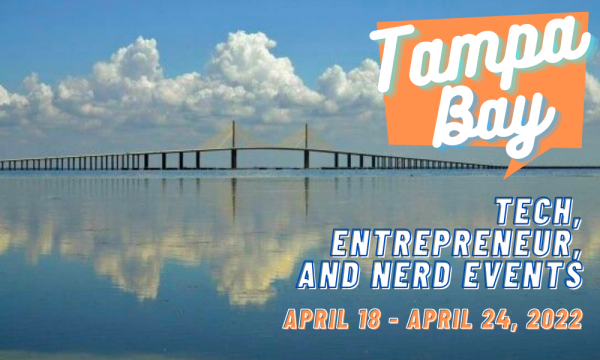
Here’s the list of tech, entrepreneur, and nerd events for Tampa Bay and surrounding areas for the week of Monday, April 18 through Sunday, April 24, 2022.
As far as event types go, this list casts a rather wide net. It includes events that would be of interest to techies, nerds, and entrepreneurs. It includes (but isn’t limited to) events that fall under the category of:
- Programming, DevOps, systems administration, and testing
- Tech project management / agile processes
- Video, board, and role-playing games
- Book, philosophy, and discussion clubs
- Tech, business, and entrepreneur networking events
- Toastmasters (because nerds really need to up their presentation game)
- Sci-fi, fantasy, and other genre fandoms
- Anything I deem geeky
By “Tampa Bay and surrounding areas”, this list covers events that originate or are aimed at the area within 100 miles of the Port of Tampa. At the very least, that includes the cities of Tampa, St. Petersburg, and Clearwater, but as far north as Ocala, as far south as Fort Myers, and includes Orlando and its surrounding cities.
This week’s events
Monday, April 18
Tuesday, April 19
Wednesday, April 20
Thursday, April 21
Friday, April 22
Saturday, April 23
Sunday, April 24
| Group | Event Name | Time |
|---|---|---|
| Florida Center for Creative Photography | Sunday Morning PhotoWalk at Largo Central Park Nature Preserve | 8:30 AM |
| Toastmasters District 48 | Clearwater Sunday Speakers Toastmasters Club | 9:30 AM |
| Board Games and Card Games in Sarasota & Bradenton | Games at Table Talk Board Game Bistro | 12:00 PM |
| Thinkful Tampa | Thinkful Webinar || Data Analytics: Tools of the Trade | 12:00 PM to 1:30 PM EDT |
| Orlando Adventurer’s Guild | April New Player Nights – AFTERNOON EDITION- Various DMs (Tier 1: Levels 1-4) | 1:00 PM |
| Critical Hit Games | D&D Adventurers League | 2:00 PM |
| Dialogue and Human Experience. | Do you know yourself? Are you self aware? | 2:00 PM |
| Official Intentional Women | Business Builder Blueprint 101 | 2:00 PM to 5:00 PM EDT |
| Drunk’n Meeples West Pasco | Weekend Game Day | 2:00 PM |
| Drunk’n Meeples the Social Tabletop (Board) Gamers | Board Games at Dented Keg (New Port Richey) | 2:00 PM |
| Tampa Bay Gaming: RPG’s, Board Games & more! | D&D Adventurers League at Critical Hit Games | 2:00 PM |
| @Lina_Leone__ | Content Creator Take 2 Social Media Class | 2:00 PM to 4:00 PM EDT |
| Orlando Business Leadership and Development Meetup Group | Get to Know You Session | 3:00 PM |
| Thinking While Drinking Tampa | How To Stay Motivated | 3:00 PM |
| Toastmasters, Division D | Weekend Toastmasters | 3:00 PM |
| Explorations in Philosophy | Introduction to philosophy | 4:30 PM |
| Lithia Dungeons & Dragons And Gaming Guild | 5E (ish) AD&D – Humble Beginnings Campaign (Trouble in Elm). | 6:00 PM |
| Tampa Hackerspace | Let’s Learn to Turn Pens! | 6:00 PM |
| Thinkful Tampa | Thinkful Webinar || UX/UI Design: Creating A Design System | 6:00 PM to 7:30 PM EDT |
| Learn-To-Trade Crypto – Online (As Seen on Orlando Sentinel) | Learn-To-Trade Cryptos, Forex & Futures (ONLINE) | 7:00 PM |
| Tampa Electronics Meetup | Let’s Chat about Electronics! | 7:00 PM |
| Nerdbrew Events | Hidden Gems Night, Presented by A Duck! | 7:00 PM |
| Nerd Night Out | NerdBrew Karaoke @ MacDinton’s! | 8:00 PM |
| Thinkful Tampa | Thinkful Webinar || Intro to JavaScript: Build a Virtual Pet | 9:00 PM to 10:30 PM EDT |
=== Mail ===
Do you have any events or announcements that you’d like to see on this list?
Let me know at joey@joeydevilla.com!
Join the mailing list!
If you’d like to get this list in your email inbox every week, enter your email address below. You’ll only be emailed once a week, and the email will contain this list, plus links to any interesting news, upcoming events, and tech articles. Join the Tampa Bay Tech Events list and always be informed of what’s coming up in Tampa Bay!

According to the subscription-only tech journal The Information, “Twitter’s board of directors views Elon Musk’s takeover offer as unwelcome, said a person familiar with the situation, suggesting it will fight the bid.”
I certainly hope they do. His move threatens to turn Twitter into early 2010s-era Reddit, when it was a cesspool of bigotry, disinformation, and that MAGA/QAnon test run called Gamergate.
Some thoughts:
- His “free speech absolutist” stance is wrong. TechDirt’s recent article, Why Moderating Content Actually Does More To Support The Principles Of Free Speech, outlines why moderation actually enhances a community’s ability to have conversation, right from the first paragraph, which includes “Some of that involves legal requirements, some of it involves trying to keep a community focused, some of it involves dealing with spam, and some of it involves just crazy difficult decisions about what kind of community you want.”
- What he truly cares about is his own free speech. Yours doesn’t matter. For example:
- When an anonymous blogger posted a stock analysis for Tesla that was negative, the so-called “free speech absolutist” borrowed a trick from even more terrible broligarch Peter Thiel’s playbook: he found the blogger’s identity and threatened their employer with a lawsuit.
- Journalist Stewart Alsop, who was a big enough fan of Tesla to order a Model X, wrote a post critical of the Model X launch event titled Dear @ElonMusk: You should be ashamed of yourself. The so-called “free speech absolutist” went out of his way to phone Alsop and let him know that he would no longer be getting that Model X as he had cancelled Alsop’s order.
- Then there are the times the so-called “free speech absolutist” fired people for speaking their minds, including:
- Posting reviews of Tesla’s autopilot functions, which included some safety warnings
- Reporting racist harassment at work
- Disagreeing with him
- Existing
- What does Musk use his freedom of speech for? Well, there’s the whole “pedo guy” thing, which didn’t add anything useful to a situation where people were racing against the clock in a search-and-rescue operation.
- The only time he’s ever faced governmental consequences for things he’s posted on Twitter was when he was he was manipulating the market for his own gain. That tweet from August 2018 — “Am considering taking Tesla private at $420. Funding secured.” was him simultaneously playing to the retail investor crowd and the still-living-in-mom’s-basement crowd (and possibly the crowd where those two Venn circles overlap). As Quartz put it in their article, Elon Musk’s Twitter bid isn’t about free speech, “if Musk has gripes about free speech, they’re with the SEC and not the company he’s trying to acquire.”
- The loudest people celebrating Musk’s potential disruption of Twitter are human trash fires, incredible dumbasses, and often an unholy combination of the two: Jack Posobiec. Lauren Boebert. Jim Jordan. Marjorie Taylor Greene. Monica Crowley. Vladimir Putin’s newest bestest buddy, Tucker Carlson.
I’ll end with an observation from my friend, LinkedIn Learning’s Morten Rand-Hendriksen, whom I know from my Microsoft days:
“Elon Musk taking #Twitter private could mean an end to content moderation and a return of the platform as fertile ground for extremism, white supremacy, harrassment, and disinformation. Or it could mean nothing. Either way, if this deal goes through, it’ll change the social media landscape in a very big way.”
A very big way, certainly. But a good one? I doubt it.
